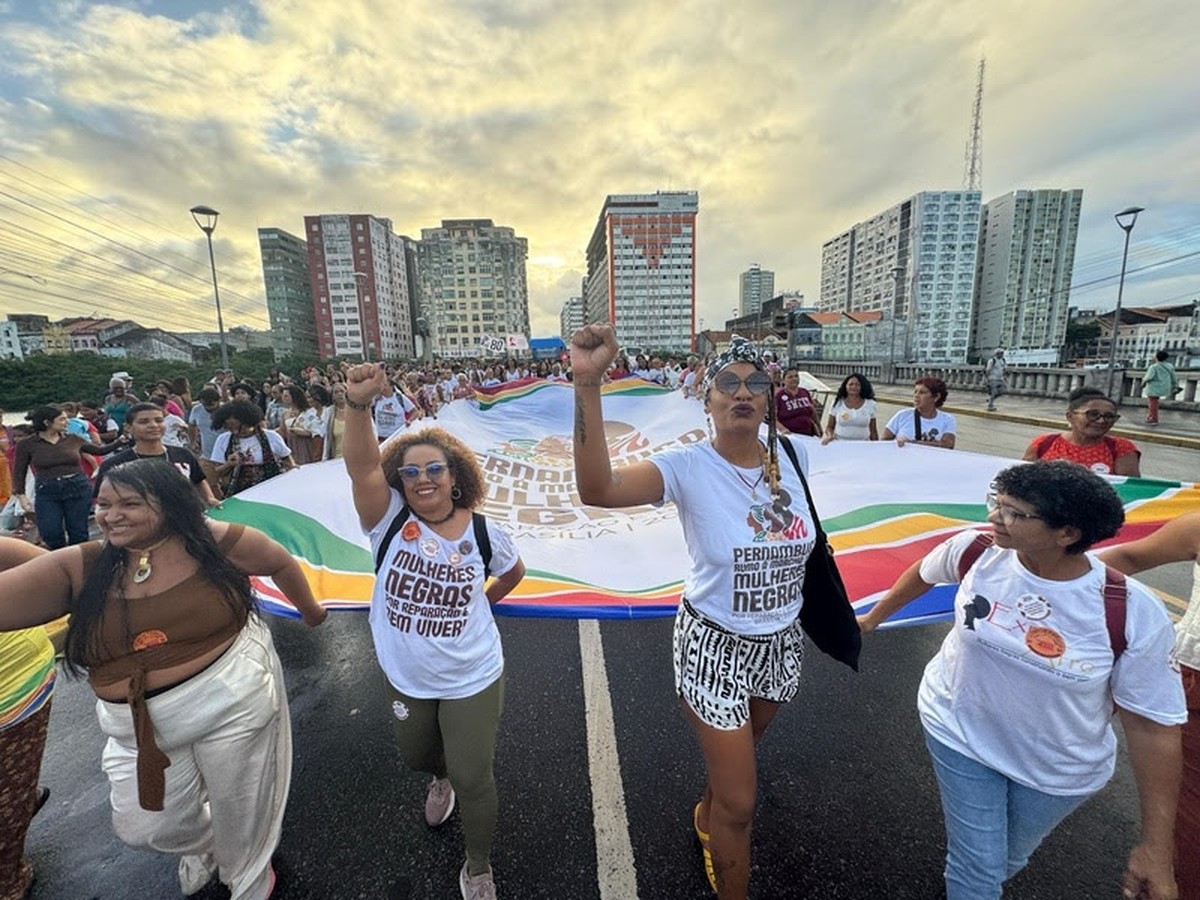Black Women’s March for Reparation and Good Living releases program with ceremony, march, free shows, STF meeting and international activities.
The Black Women’s March for Reparation and Good Living has released the official program for November 25 in Brasília, marking ten years since the historic 2015 mobilization that brought more than 100,000 Black women to the streets of the Brazilian capital. The 2025 edition responds to deepening inequalities and reaffirms the urgency of a country committed to historical reparation, social justice and a dignified future. Participants are expected from all regions of Brazil and more than 40 countries.
The program begins at 9 a.m. with a Solemn Session at the National Congress in honor of the March and the central role of Black women in Brazilian democracy. The session will include parliamentarians such as Benedita da Silva, Talíria Petrone and Célia Xakriabá, along with leaders from Black movements. According to Joyce Souza, coordinator of Odara Instituto da Mulher Negra, “political participation of Black women is part of our reparation agenda: we are 28% of the population but only 2% of Congress”.
At 10 a.m., thousands of women will march along the Esplanada dos Ministérios. For Valdecir Nascimento, founder of Odara, “we march in the literal sense, because the streets are our place. We do not march symbolically; we march for reparation, against racism, against violence and for another model of society”. Throughout the route, Brasília becomes a territory where every story matters.
At 7:30 p.m., representatives of the March will be received by the President of the Federal Supreme Court, Minister Edson Fachin. The delegation will present the urgency of addressing Brazil’s public security policies, especially after the recent massacre in Penha, Rio de Janeiro. For professor Janira Sodré, “the episode shows how much we still need to confront public security to build republican meanings for the lives of Black people, Black youth and Black women”.
Throughout the day, the Feira das Ganhadeiras will take place outside the National Museum, bringing together Afro-entrepreneurs from all regions of Brazil. The initiative honors Black women who, whether enslaved or free, supported families and communities through street labor.
Starting at 3 p.m., also outside the National Museum, the Voices in March circuit will feature free performances by Larissa Luz, Luana Hansen, Célia Sampaio e Núbia, Prethaís and Ebony. The program continues until 9:30 p.m., subject to capacity.
The Week for Reparation and Good Living, held between November 20 and 26, gathers Black women from Brazil and abroad to build possible futures. The agenda includes fairs, music presentations, book launches, conversation circles and sharing spaces.
Between November 22 and 24, the Global Dialogues take place with participants from Africa, the Americas and Europe. For Naiara Leite, activist of the National Steering Committee, the meetings strengthen political articulation between Black women from Brazil, the diaspora and the African continent. “It is about imagining fairer and truly democratic futures,” she states.
The program also includes key expressions of Black LGBTQIA+ dissidences. In this context, the Ball “1 Million Black FQs: The Dolls’ Revolution”, organized by the Grand Prize collective, will be held on November 23 at 4 p.m. The event celebrates Ballroom Culture with music, speeches and a ten-category Kiki Ball. The venue will be announced through the profiles @1milhaofqsnegras and @_grandprize.
More information about the Week for Reparation and Good Living and the Global Dialogues can be found on the official website: Link.
The Black Women’s March for Reparation and Good Living is built by Black women from different generations, regions and social contexts, along with Afro-descendant women from more than 40 countries. Autonomous and transnational, the March updates the legacy of the 2015 mobilization in response to contemporary challenges.
Photo: Fran Silva/Divulgação

